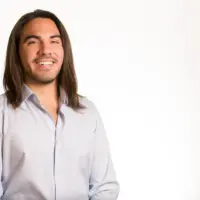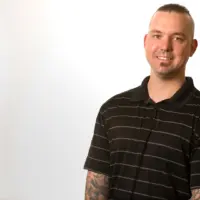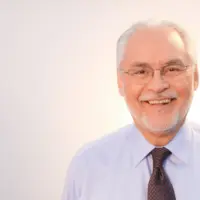About Socorro Cri-Help Inc
Socorro Cri-Help, Inc. provides many substance use disorder programs from detoxification and withdrawal management to residential treatment and intensive outpatient programs at their facility located on the northeast side of Los Angeles, California.
Comprehensive and Holistic Approach to Care
Your program begins with a comprehensive evaluation to determine if you require detoxification services before beginning evidence-based therapies. Early detoxification can be intimidating and may have life-threatening risks that require medical intervention. Their detox approach is medically managed so you transition to the next stage of your recovery journey safely and with fewer unpleasant side effects.
The comprehensive approach uses a holistic process that addresses your physical, emotional, and psychological needs. In addition to evidence-based therapies, your program may include activities and therapies to promote your emotional and spiritual well-being, such as art therapy, acupuncture, and others.
They recognize that addiction affects not only the individual but also the family, including family therapy sessions and educational workshops to help family members understand addiction and learn effective communication skills to rebuild trust. Alongside therapy, you also participate in a 12-step program where you can interact with peers who have experienced many of the same things you have.
Discharge Planning Begins on the First Day
Discharge planning begins on the first day of treatment and is evaluated and modified throughout your program. They understand that your recovery is a lifelong journey and are committed to ensuring you receive ongoing support and resources to maintain your sobriety true and an aftercare program that connects you with an Alumni network and a community of support people.
After leaving residential treatment or if you don’t need residential treatment, you have access to an intensive outpatient program or a traditional outpatient treatment program. The programs are also offered in Spanish. They are committed to providing culturally and linguistically appropriate services to the Latin community.
Latest Reviews
Rehab Score
Gallery
Accepted Insurance
Other Forms of Payment
Private insurance refers to any kind of healthcare coverage that isn't from the state or federal government. This includes individual and family plans offered by an employer or purchased from the Insurance Marketplace. Every plan will have different requirements and out of pocket costs so be sure to get the full details before you start treatment.
Self-pay involves paying for treatment out of your own pocket. You can use savings or credit, get a personal loan, or receive help from family and friends to fund your treatment. If you don't have insurance or your insurance plan doesn't cover a specific program, self-pay can help ensure you still get the care you need.
Financial aid can take many forms. Centers may have grants or scholarships available to clients who meet eligibility requirements. Programs that receive SAMHSA grants may have financial aid available for those who need treatment as well. Grants and scholarships can help you pai for treatment without having to repay.
Military members, veterans, and eligible dependents have access to specific insurance programs that help them get the care they need. TRICARE and VA insurance can help you access low cost or no cost addiction and mental health treatment. Programs that accept military insurance often have targeted treatment focused on the unique challenges military members, veterans, and their families face.
Medicaid is a state based program that helps lower-income individuals and families pay for healthcare. Medicaid covers addiction treatment so those enrolled can use their coverage to pay for rehab. When a program accepts Medicaid the client often pays very little or nothing out of their own pocket.
Addiction Treatments
Levels of Care
Outpatient programs are for those seeking mental rehab or drug rehab, but who also stay at home every night. The main difference between outpatient treatment (OP) and intensive outpatient treatment (IOP) lies in the amount of hours the patient spends at the facility. Most of the time an outpatient program is designed for someone who has completed an inpatient stay and is looking to continue their growth in recovery. Outpatient is not meant to be the starting point, it is commonly referred to as aftercare. The George T. Pfleger Center offers outpatient treatment as part of a continuum of care, or as an independent service. Their flexible programs span daytime and evening treatment options, anywhere from 5 to 40 hours per week, depending on client need and availability. Traditional outpatient levels of care are available to clients who complete residential treatment and desire additional support as they reintegrate back into daily living. Intensive outpatient is also available for clients who need a more acute level of care.
Detoxification is an important step in safely freeing your body from drugs and alcohol. That’s why Socorro Residential Treatment Center’s treatment center offers detox services for clients experiencing moderate to severe withdrawal from prolonged substance use. Medication management and experienced drug-weaning methods are available and supervised by American Board of Addiction Medicine certified physicians and a highly trained treatment team. Their 15-bed facility allows for private and semiprivate care for a week or longer depending on the severity of withdrawal. Their medical team individualizes each treatment plan to better facilitate optimal outcomes and manage your transition to the next level of care.
Residential treatment programs are those that offer housing and meals in addition to substance abuse treatment. Rehab facilities that offer residential treatment allow patients to focus solely on recovery, in an environment totally separate from their lives. Some rehab centers specialize in short-term residential treatment (a few days to a week or two), while others solely provide treatment on a long-term basis (several weeks to months). Some offer both, and tailor treatment to the patient's individual requirements. At Socorro Residential Treatment Center, they understand that addiction affects your self-worth and self-esteem. They’re committed to providing a safe space for you to explore the underlying causes of your addiction. Their residential treatment program will give you a strong support network as you learn that it is possible to overcome your addiction and feel whole again.
12-step programs are addiction recovery models based on Alcoholics Anonymous (AA). A number of substance abuse programs (including some drug and alcohol rehab centers) use the 12 steps as a basis for treatment. Beginning steps involve admitting powerlessness over the addiction and creating a spiritual basis for recovery. Middle steps including making direct amends to those who've been hurt by the addiction, and the final step is to assist others in addiction recovery in the same way. 12-Step offshoots including Narcotics Anonymous (NA), Cocaine Anonymous (CA), Dual Recovery Anonymous (DRA), Sex and Love Addicts Anonymous (SLAA) and Gamblers Anonymous (GA).
Completing a drug or alcohol rehab program shouldn't spell the end of substance abuse treatment. Aftercare involves making a sustainable plan for recovery, including ongoing support. This can include sober living arrangements like halfway houses, career counseling, and setting a patient up with community programs like Alcoholics Anonymous (AA) or Narcotics Anonymous (NA).
Socorro Residential Treatment Center offers sober living environments (also known as drug-free living zones) to alumni and existing outpatient clients. Their facilities offer comfortable, affordable housing as clients move toward independent living. A housing supervisor assesses applicants, monitors activity, assures a drug-free environment, coordinates facility maintenance and provides reports on resident progress. Most Transitional Living clients are enrolled in Outpatient Treatment, and all are required to participate in community 12-step meetings and house meetings to continue their progress toward the goal of independent living.
Treatments
The goal of treatment for alcoholism is abstinence. Those with poor social support, poor motivation, or psychiatric disorders tend to relapse within a few years of treatment. For these people, success is measured by longer periods of abstinence, reduced use of alcohol, better health, and improved social functioning. Recovery and Maintenance are usually based on 12 step programs and AA meetings.
Drug rehab in California teaches participants constructive ways to stay clean and sober. Treatment revolves around helping individuals stop using the substance they are addicted to and learn healthy habits to avoid relapse.
Many of those suffering from addiction also suffer from mental or emotional illnesses like schizophrenia, bipolar disorder, depression, or anxiety disorders. Rehab and other substance abuse facilities treating those with a dual diagnosis or co-occurring disorder administer psychiatric treatment to address the person's mental health issue in addition to drug and alcohol rehabilitation.
A combined mental health and substance abuse rehab has the staff and resources available to handle individuals with both mental health and substance abuse issues. It can be challenging to determine where a specific symptom stems from (a mental health issue or an issue related to substance abuse), so mental health and substance abuse professionals are helpful in detangling symptoms and keeping treatment on track.
Opioid rehabs specialize in supporting those recovering from opioid addiction. They treat those suffering from addiction to illegal opioids like heroin, as well as prescription drugs like oxycodone. These centers typically combine both physical as well as mental and emotional support to help stop addiction. Physical support often includes medical detox and subsequent medical support (including medication), and mental support includes in-depth therapy to address the underlying causes of addiction.
Programs
Adult rehab programs include therapies tailored to each client's specific needs, goals, and recovery progress. They are tailored to the specific challenges adult clients may face, including family and work pressures and commitments. From inpatient and residential treatment to various levels of outpatient services, there are many options available. Some facilities also help adults work through co-occurring conditions, like anxiety, that can accompany addiction.
Young adulthood can be an exciting, yet difficult, time of transition. Individuals in their late teens to mid-20s face unique stressors related to school, jobs, families, and social circles, which can lead to a rise in substance use. Rehab centers with dedicated young adult programs will include activities and amenities that cater to this age group, with an emphasis on specialized counseling, peer socialization, and ongoing aftercare.
Clinical Services
Research clearly demonstrates that recovery is far more successful and sustainable when loved ones like family members participate in rehab and substance abuse treatment. Genetic factors may be at play when it comes to drug and alcohol addiction, as well as mental health issues. Family dynamics often play a critical role in addiction triggers, and if properly educated, family members can be a strong source of support when it comes to rehabilitation.
Group therapy is any therapeutic work that happens in a group (not one-on-one). There are a number of different group therapy modalities, including support groups, experiential therapy, psycho-education, and more. Group therapy involves treatment as well as processing interaction between group members.
In individual therapy, a patient meets one-on-one with a trained psychologist or counselor. Therapy is a pivotal part of effective substance abuse treatment, as it often covers root causes of addiction, including challenges faced by the patient in their social, family, and work/school life.
Life skills trainings involve all the skills a person must have in order to function successfully in the world. These include time management, career guidance, money management, and effective communication. Truly successful addiction recovery is based on the ability to not only live substance-free, but to thrive. Life skills teaches the practical necessities of functioning in society, which sets clients up for success in life, and therefore sobriety.
Trauma therapy addresses traumatic incidents from a client's past that are likely affecting their present-day experience. Trauma is often one of the primary triggers and potential causes of addiction, and can stem from child sexual abuse, domestic violence, having a parent with a mental illness, losing one or both parents at a young age, teenage or adult sexual assault, or any number of other factors. The purpose of trauma therapy is to allow a patient to process trauma and move through and past it, with the help of trained and compassionate mental health professionals.
Cognitive behavioral therapy in California is a method that therapists often use for the effective treatment of substance use disorders. It is based on the principle that substance abuse stems from unhelpful ways of thinking and patterns of behavior, which can be changed by helping the individual learn better ways of coping.
Amenities
-
Private Setting
-
Yoga Studio
-
Gym
-
Residential Setting
Staff & Accreditations
Staff

Brandon Fernandez
CEO

Charles Burstin, Ph.D
Residential Detox Doctor

Gary Horejsi
Clinical Director

Marco Pardo
Spirituality & Grief Counselor

Kim Long
Outpatient Program Manager

Mary Grayson
Assistant Chief Support Technician

Junie Gonzalez
Director of Operations

Dayna Dewitt
Director of Nursing
Accreditations

The Commission on Accreditation of Rehabilitation Facilities (CARF) is a non-profit organization that specifically accredits rehab organizations. Founded in 1966, CARF's, mission is to help service providers like rehab facilities maintain high standards of care.
CARF Accreditation: Yes
Accreditation Number: 28148

The Substance Abuse and Mental Health Services Administration (SAMHSA) is a branch of the U.S. Department of Health and Human Services. Established in 1992 by congress, SAMHSA's mission is to reduce the impact of substance abuse and mental illness on American's communities.
SAMHSA Listed: Yes
Contact Information
4455 Burns Avenue
Los Angeles, CA 90029





